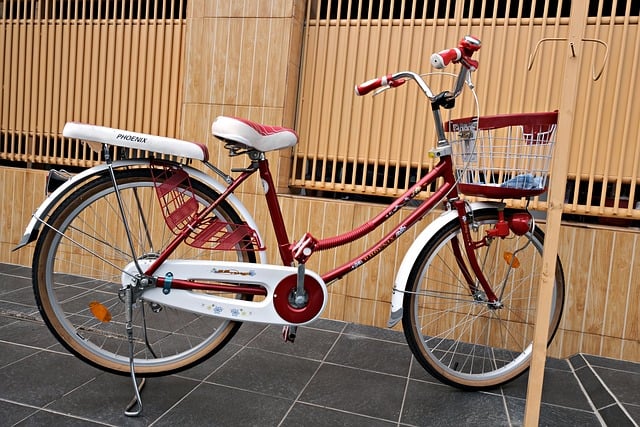In New Bedford, MA, homeowners and property managers are increasingly turning to eco-friendly fencing materials for both aesthetic and environmental reasons. This trend reflects a growing awareness of sustainable living and the significant ecological benefits that come with choosing the right barrier solutions. As this article explores, exploring green fencing options not only enhances outdoor spaces but also contributes to a healthier planet. We delve into the advantages, popular materials, and the profound environmental impact of these innovative eco-conscious choices.
- Exploring Eco-Friendly Fencing Options in New Bedford
- Benefits of Sustainable Fencing for Your Property
- Popular Materials: Innovations in Green Fencing
- The Environmental Impact: Why Choose Eco-Conscious?
Exploring Eco-Friendly Fencing Options in New Bedford
In New Bedford, MA, residents and local authorities are increasingly exploring eco-friendly fencing options as part of a broader sustainability agenda. The city’s commitment to environmental preservation and green spaces makes it an ideal setting for adopting fencing materials that not only enhance aesthetics but also contribute to ecological well-being. Organic and recycled fencing solutions offer a promising alternative to traditional options, addressing both environmental and functional needs.
These eco-friendly materials range from natural woods certified by sustainable management practices to innovative composite products made from recycled plastic and wood fibers. Additionally, living fences—using plants and vines—present a unique and aesthetically pleasing option that also provides habitat for local wildlife. By considering these alternatives, New Bedford can foster a more sustainable urban landscape while maintaining the city’s distinctive character.
Benefits of Sustainable Fencing for Your Property
Eco-friendly fencing materials offer numerous benefits for New Bedford, MA homeowners looking to enhance their properties while minimizing environmental impact. These sustainable options are designed with durability and low maintenance in mind, saving you time and money over traditional fences. Materials like recycled plastic, wood from certified sustainable sources, and bamboo not only reduce waste but also provide excellent resistance to rot, rust, and pests.
Moreover, opting for eco-friendly fencing contributes to local wildlife habitat preservation and carbon sequestration. By choosing materials that are locally sourced or made from renewable resources, you support area ecologies and help mitigate climate change. These fences often boast vibrant colors and unique textures, adding aesthetic appeal to your outdoor space while promoting a greener, more sustainable community in New Bedford.
Popular Materials: Innovations in Green Fencing
In recent years, there’s been a noticeable shift towards eco-friendly fencing materials, driven by both environmental consciousness and aesthetic preferences. New Bedford, MA residents now have a plethora of options beyond traditional wood or vinyl. Popular choices include recycled plastic, bamboo, and various plant-based composites that offer durability and low maintenance—a perfect fit for the region’s diverse landscapes.
Innovations in green fencing materials have led to products that mimic the look of conventional fences while reducing environmental impact. For instance, recycled plastic fence posts are not only long-lasting but also help divert plastic waste from landfills. Bamboo, known for its rapid growth and strength, is another sustainable option. Moreover, composite materials blend wood fibers with plastics, providing a robust and visually appealing alternative to traditional fencing that requires less treatment and maintenance over time.
The Environmental Impact: Why Choose Eco-Conscious?
In today’s world, where environmental concerns are at the forefront, choosing eco-friendly fencing materials is more than just a trend—it’s a responsible decision for New Bedford residents and businesses. The traditional fencing industry often relies on non-sustainable practices, contributing to deforestation, pollution, and greenhouse gas emissions. By opting for green alternatives, we can significantly reduce our ecological footprint.
Eco-conscious fencing offers numerous environmental advantages. These materials are typically made from recycled or renewable resources, such as plastic bottles, wood waste, or natural fibers. They help conserve natural resources by decreasing the demand for new raw materials. Moreover, eco-friendly options often have a lower carbon footprint due to reduced manufacturing processes and transportation costs. This choice contributes to local air quality, preserves biodiversity, and promotes a healthier ecosystem, making New Bedford a more sustainable community.
